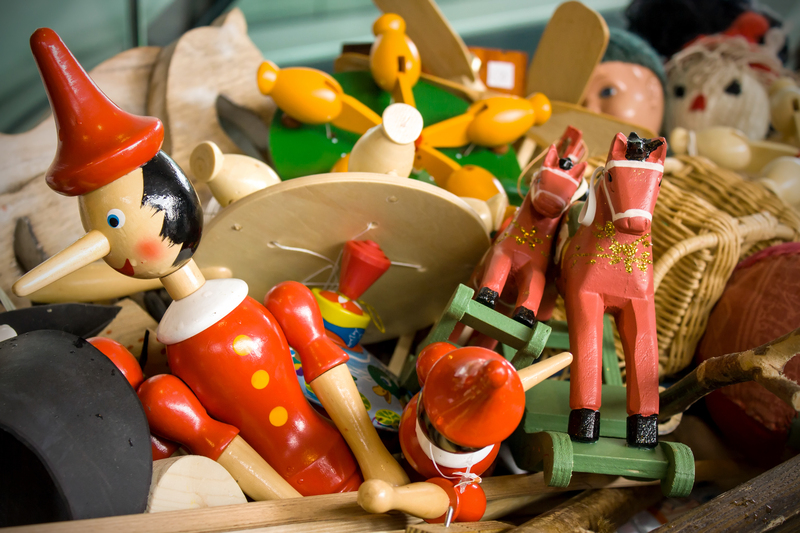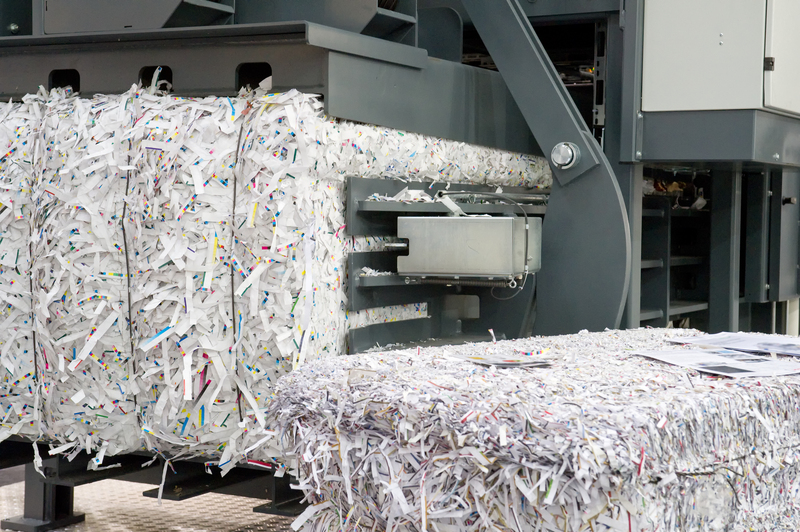Sustainable Solutions for Disposing of Old Pots and Pans
Are you looking to refresh your kitchen or simply declutter your space? Before tossing your old cookware in the trash, consider the negative environmental impact and explore more sustainable solutions for disposing of old pots and pans. This comprehensive guide will help you navigate the best practices for eco-friendly cookware disposal, donation, recycling, and upcycling. From non-stick pans to stainless steel saucepans, we'll walk you through all your options, ensuring your choices help protect the planet.
Why Sustainable Disposal of Cookware Is Important
Every year, millions of pots and pans end up in landfills, contributing to pollution and resource waste. Below are some compelling reasons why sustainable disposal of old kitchenware matters:
- Reduces Landfill Waste: Most cookware is made from metals and plastics that take centuries to break down.
- Conserves Valued Resources: Reusing and recycling old pots and pans helps save raw materials and energy required for manufacturing new products.
- Minimizes Harmful Chemical Leaching: Non-stick coatings and other materials can release toxins as they degrade in landfills.
- Supports Circular Economy: Responsible disposal allows materials to re-enter the production cycle, reducing the need for virgin resources.
Adopting sustainable solutions not only curbs environmental degradation but can also benefit local charities, crafters, and businesses.

1. Recycling Old Pots and Pans Responsibly
Understanding Cookware Recycling Challenges
Most pots and pans are made from metal--like aluminum, stainless steel, and copper--which are all highly recyclable materials. However, some pans have non-recyclable elements such as plastic handles, glass lids, or non-stick coatings (such as Teflon), complicating the process. Make sure you understand the composition of your cookware before recycling.
Where and How to Recycle Old Cookware
- Municipal Recycling Centers: Many local recycling facilities accept metal items like pans, though you may need to remove plastic handles or glass lids first.
- Metal Scrap Yards: Contact local scrapyards to see if they accept household cookware. They often buy in bulk and can handle mixed materials.
- Special Recycling Programs: Some companies or community programs offer periodic drives for recycling hard-to-manage household items, including old pots and pans.
Tip: Contact your city's waste management office for specific guidelines on how to recycle cookware in your area.
Steps for Recycling Old Pots and Pans
- Check for a recycling symbol: Some newer cookware may display symbols indicating recyclability.
- Remove all non-metal parts: Unscrew plastic handles, knobs, or any silicon/rubber components.
- Separate by material: If you have a set made from different metals, keep them organized for easier processing.
- Clean thoroughly: Wash off any residual food or grease to prevent contamination of the batch.
- Deliver to the facility: Drop off your old pans at the correct location and ensure personnel know what you're recycling.
2. Donating Gently Used Cookware
Not all cookware reaches the end of its life with your household. If your pans and pots are still in good condition, consider donating cookware sustainably. Many people and organizations are in need of functional kitchen tools.
Where to Donate Old Pots and Pans
- Charity Thrift Stores: Larger organizations such as Goodwill, Salvation Army, or local charities often accept household items.
- Community Shelters: Women's shelters, refugee centers, and homeless shelters frequently need kitchen basics for families in transition.
- Food Banks with Community Kitchens: Some food banks support cooking classes or shared kitchens and can benefit from extra cookware.
- Churches and Community Centers: Ask if they have programs supporting families or individuals setting up new homes.
Tips for Donating Kitchenware Effectively
- Ensure items are clean and safe to use; remove grease, grime, or cracked coatings.
- Bundle with other useful items; such as a matching lid or utensils.
- Call ahead to confirm needs and acceptance policies; some places may not accept certain materials or sizes.
- Attach a note with care instructions; especially if it's a specialty item that needs specific maintenance.
3. Upcycling and Repurposing Old Pots and Pans
Even if a pan is too worn out for cooking, it doesn't need to go to waste. Sustainable upcycling of old cookware is a creative way to give new life to otherwise discarded kitchen tools. Plus, it's a fun approach to home-made sustainability!
DIY Upcycling Project Ideas
- Planters: Old pots make excellent planters for herbs, flowers, or succulents. Drill a few holes in the bottom for drainage, fill with soil, and decorate the outside for a unique garden feature.
- Bird Feeders or Baths: Use shallow pans or skillets as the perfect base for a rustic bird feeder or water bath in your garden.
- Storage Containers: Hang up old pans to store small tools or kitchen gadgets--or mount them under shelves for extra organization.
- Wall Art or Clocks: Artistic painting, mosaic work, or even turning a pan into a quirky clock adds charm to your kitchen or patio walls.
- Wind Chimes: Combine old utensils and pans to create whimsical musical decor for your outdoor spaces.
Repurposing is limited only by your creativity! Not only will you keep metals out of landfills, but you'll also add distinctive, useful, or decorative items to your home.
4. Retailer Take-Back and Manufacturer Programs
Many cookware companies and retailers are responding to the desire for sustainable disposal solutions for old pots and pans. Some now offer recycling or trade-in programs.
- In-Store Drop-Offs: Brands like Williams-Sonoma and Sur La Table occasionally have in-store cookware recycling events.
- Mail-Back Programs: Companies such as TerraCycle occasionally partner with brands for mail-in recycling of old kitchenware, including non-stick pans.
- Trade-In Discounts: Some retailers offer discounts on new items when you bring in old pots and pans for responsible disposal.
Check with manufacturers of your cookware: Many premium brands have sustainability pledges and may offer free take-back or recycling services.
5. Safe Disposal of Non-Stick and Coated Cookware
Non-stick coatings, particularly those containing PTFE (like Teflon) or PFOA, pose recycling and environmental challenges. Here are ways to responsibly dispose of these pans:
- Contact Waste Facilities: Some municipal hazardous waste collections accept non-stick or Teflon-coated cookware.
- Check for Specialized Recycling: Participating TerraCycle or specialty programs may safely handle non-stick coatings.
- Upcycle for Non-Food Use: Use old non-stick pans for craft projects or as utility trays, but avoid any further food contact.
*Never attempt to burn, incinerate, or sand non-stick coatings yourself, as this can release harmful chemicals.*
6. Creative Community Initiatives
Many communities are developing new ways to handle eco-friendly disposal of kitchenware. Get involved in community action for a bigger impact!
- Yard Sales: Organize or participate in neighborhood sales to give old cookware another chance.
- Freecycle and Online Marketplaces: List items on Freecycle, Craigslist, or Facebook Marketplace for free or at low cost, connecting directly with those in need.
- Repair Cafes: Attend local repair events where skilled volunteers can restore or upcycle damaged cookware for community members.
By coordinating with your local community, you not only facilitate sustainable solutions for your old cookware but promote broader environmental awareness.
7. What Not to Do: Avoiding Unsustainable Disposal
- Do not throw old pots and pans in regular trash: Metals can persist for centuries, contaminating landfills.
- Avoid burning or melting at home: Especially for non-stick pans or anything coated--this can release dangerous toxins.
- Don't assume curbside recycling covers cookware: Many municipal bins are not set up for large metal items.
8. Tips for Extending the Lifespan of Cookware
Reducing future waste is as important as sustainable disposal. Here's how to prolong your pans' usefulness:
- Follow manufacturer care guidelines: Hand-wash and use gentle utensils to avoid scratches and premature wear.
- Season cast iron and carbon steel: This prevents rust and improves cooking surface longevity.
- Avoid using high heat with non-stick or enameled cookware--this helps coatings last longer.
- Repair minor damage: Replace handles or re-season rather than discarding at the first sign of wear.

Frequently Asked Questions
Can I put old pots and pans in the recycling bin?
Usually not, unless your city specifically states it. Standard curbside recycling programs rarely accept bulky items or items with mixed materials (like plastic handles). Instead, take them to scrap yards or designated drop-off centers.
Are non-stick coatings recyclable?
Standard non-stick coatings like Teflon are not accepted by most recyclers due to their chemical properties. Always check for specialized programs or focus on upcycling and donation whenever possible.
What about glass lids?
Most recycling programs do not accept tempered glass commonly used in cookware lids. Consider donating if they are in good condition or using for craft projects.
Conclusion: Making the Most of Old Cookware
As you upgrade your kitchen or simplify your space, remember that sustainable solutions for disposing of old pots and pans are within reach for every household. By choosing to recycle, donate, upcycle, or utilize retailer programs, you help conserve natural resources, reduce landfill impact, and even support your community. The next time your well-used skillet or saucepan reaches the end of its culinary journey, think twice before sending it to the landfill. Your efforts in responsible cookware disposal can make a meaningful difference for both the environment and those in need.
Additional Resources:
- TerraCycle recycling programs
- Earth911: Local recycling search tool
- Freecycle: Give and get free stuff locally
- Your municipality's waste management website
If you found these sustainable solutions for disposing of old pots and pans helpful, share this guide with friends and family. Together, we can foster a cleaner, greener future--one kitchen at a time!